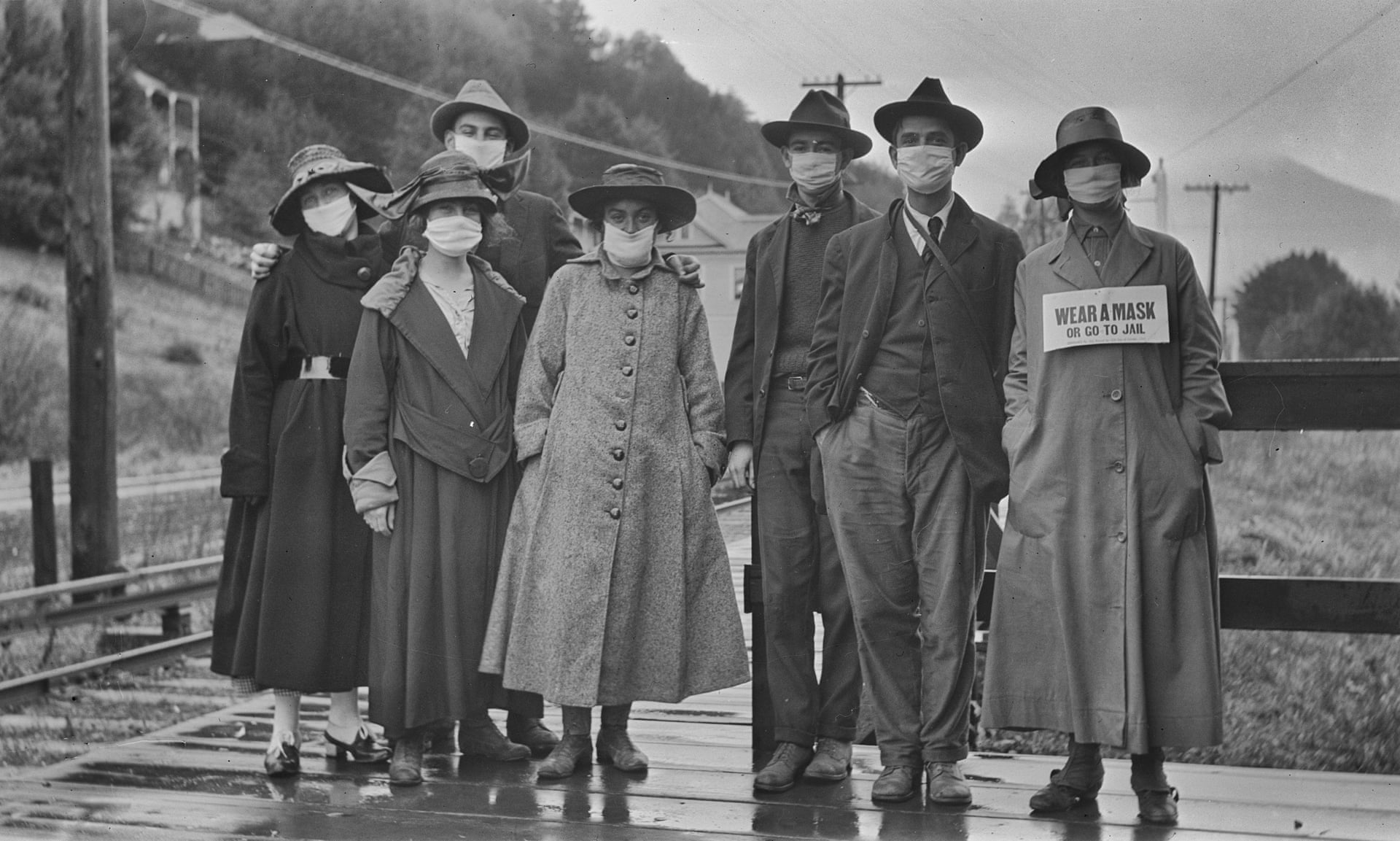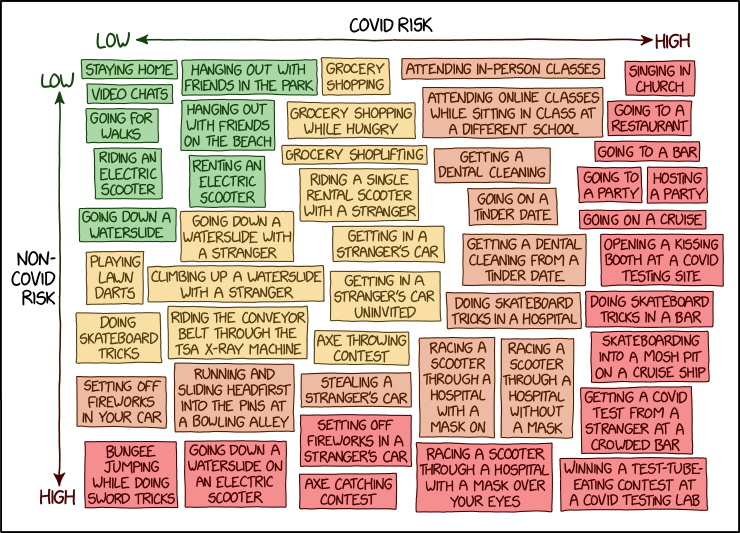(This Week) Open Skies, Cliodynamics & History’s Rhymes
19 July 2020
Welcome back to the Week That Was series where I highlight a few things from the interwebs which I thought were interesting, noteworthy and probably worth your time.
Articles📝, Tweet(s)📱, Videos🎥, Charts 📈 all fair game with or without attendant commentary.
📺😨
 News Flash, gouache on paper, 2020
News Flash, gouache on paper, 2020
📜🔁 History Rhymes
I spent a bit of time looking at the work of Peter Turchin, a Russian-American scientist specialising in cultural evolution and cliodynamics. That second specialty involves looking at broad historical arcs and trends through a mathematical lens and is of particular interest here.
A good theory should have explanatory power and allow us to make predictions.
In 2010 Turchin wrote a piece in Nature magazine called Political instability may be a contributor in the coming decade. One of the claims made:
Quantitative historical analysis reveals that complex human societies are affected by recurrent — and predictable — waves of political instability (Secular Cycles, 2009)
Using the US as his case, he writes that he sees a number of these cycles peaking in 2020, leading to political instability there. Interesting.
In 2013 he built on the prediction, penning an insightful longread essay called Return of the oppressed (4,400 words), where he unpacks some of the mechanics behind his analyses and doubles-down on his 2020 prediction.
The interplay of absolute and relative inequality, along with well-being, play a huge role in his model and he looks at all from the Roman Empire through to what he terms our new Gilded Age to trace his conclusions.

His take is well-worth reading, not just because he seems to have nailed a sociological prediction (notoriously difficult) - but unpacking his model serves as a great reminder of just how cyclical human history has been; how predictable our aggregate behaviour tends to be and why not deeply engaging history dooms us inexorably to repeat it.
⚖️ Inequality
A few years ago Walter Scheidel published 📖 The Great Leveler, a book looking at the greatest equalising forces whenever wealth has concentrated too acutely in the elite class for too long.
The analysis is sobering and came down to any combination of four factors: Plague, revolution, war or state collapse. He wrote an article summarising those views called 📝 The Only Thing, Historically, That’s Curbed Inequality: Catastrophe.
“The Black Death forced landowners to start paying their tenants and to grant them more rights.” - Jared Diamond
📝 The Economist interviewed him after the book’s publication and pushed back on his thesis, citing the wealth creation and inequality reduction which came from say FDR’s New Deal and LBJ’s Great Society reforms.
His answer squares with Turchin’s analysis:
“In America, transfer programmes from the New Deal to the Great Society managed to mitigate income inequality. But all that has since been reversed.”

As evidenced from the histories of most developed nations and locales like the Scandanavian countries, New Zealand etc: what tends to reduce inequality is “very high income and estate taxes, strong labour unions, and intrusive regulations and controls”, per Scheidel. Yet most of this is politically untenable in the world’s largest democracy. Leaving stark choices.
Either Turchin’s historical forces and Scheidel’s grim analysis about catastrophe will have to play out in whatever way they do; or that society’s elites will have the wherewithal to understand why even the US saw progressive taxes topping out at above 90% during some of it’s most productive decades.
“Reforms that ensured an equitable distribution of the fruits of economic growth turned out to be a highly effective counter to the lure of Bolshevism” - Turchin
What seems certain is that Covid-19 is going to drive further inequalities within States as well as between them. Not only that but we already see the bifurcation in fortunes between a certain class of companies (Big Tech) and many others. There don’t appear to be any ameliorating forces in sight which would counter any of what’s been mentioned above as yet.
Lastly, Thomas Picketty’s central thesis in 📖 Capital in the Twenty-First Century was that “r>G” i.e. returns on capital exceed the economic growth rate. he argues (quite logically) that while this remains true, increasing inequality is essentially baked into the fabric of the current socio-economic systems.
The returns to shareholders (while unemployment spikes and small/medium businesses fail) since the March 2020 crash seems further evidence of this…
🎨🖌️ The New American Gothic

Criselda Vasquez, Oil on canvas, 2017
🦠🧼🖐💦⚕ Greenzone
On history’s rhymes (and modern complaints about apparently unprecedented curtailing of “freedoms”).
 😷 “Spanish Flu Pandemic 1918 Archive Rail commuters wearing white protective mask”
😷 “Spanish Flu Pandemic 1918 Archive Rail commuters wearing white protective mask”
 😀XKCD
😀XKCD
🍘This user posted a shot with this caption: “Today the South Korean government delivered all this for our 14 days of quarantine”

A distancing reminder
🎨 The Ritual
 The COVID Ritual, Shirumuart, Digital, 2020
The COVID Ritual, Shirumuart, Digital, 2020
In case you’re wondering what Jan Babal (written on the card) means. Basically, “Don’t be stubborn” - encouraging citizens to follow health precautions.
💬🤔 Beliefs
“Whenever you find yourself getting angry about a difference of opinion, be on your guard; you will probably find, on examination, that your belief is going beyond what the evidence warrants.” - Bertrand Russell
☄️🌌 Open Skies
Eclipse composite from Damian Delgado

Northern Hemisphere natives have been treated to the possibility of spotting C/2020 F3 (NEOWISE), a retrograde comet we only discovered on March 27th this year. Some of the stunning shots captured by avid skywatchers
🎶🎧 Oh…and one more thing
The very public journey from incredible precocious talent to master of all instruments and harmony appears to be going swimmingly for “musicians’s musician” Jacob Collier.
Here’s his NPR Tiny Desk @ Home mini-set. My fave is the track at 10 minute mark
📧 Get this weekly in your mailbox
Thanks for reading. Tune in next week. And please share with your network
Links The Week That Was Pickings
19aed8f @ 2021-01-10


